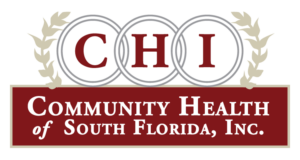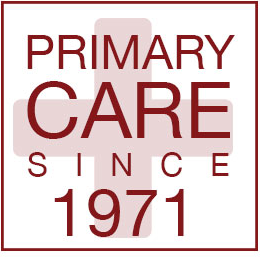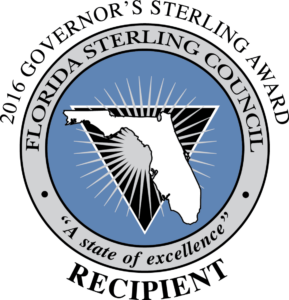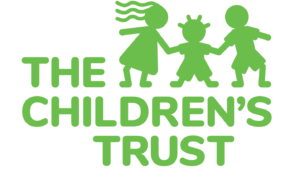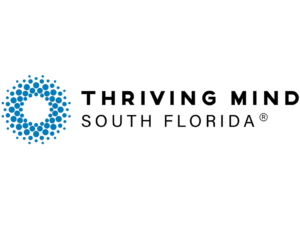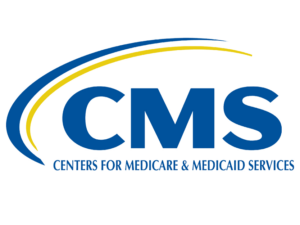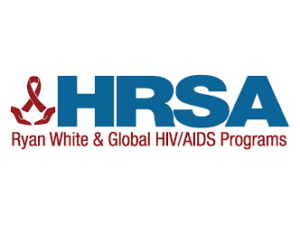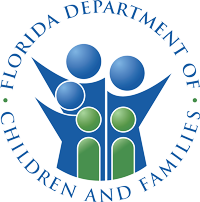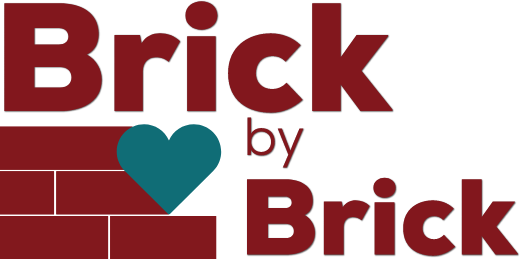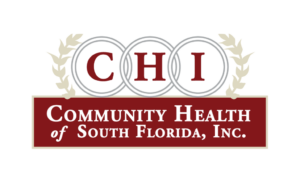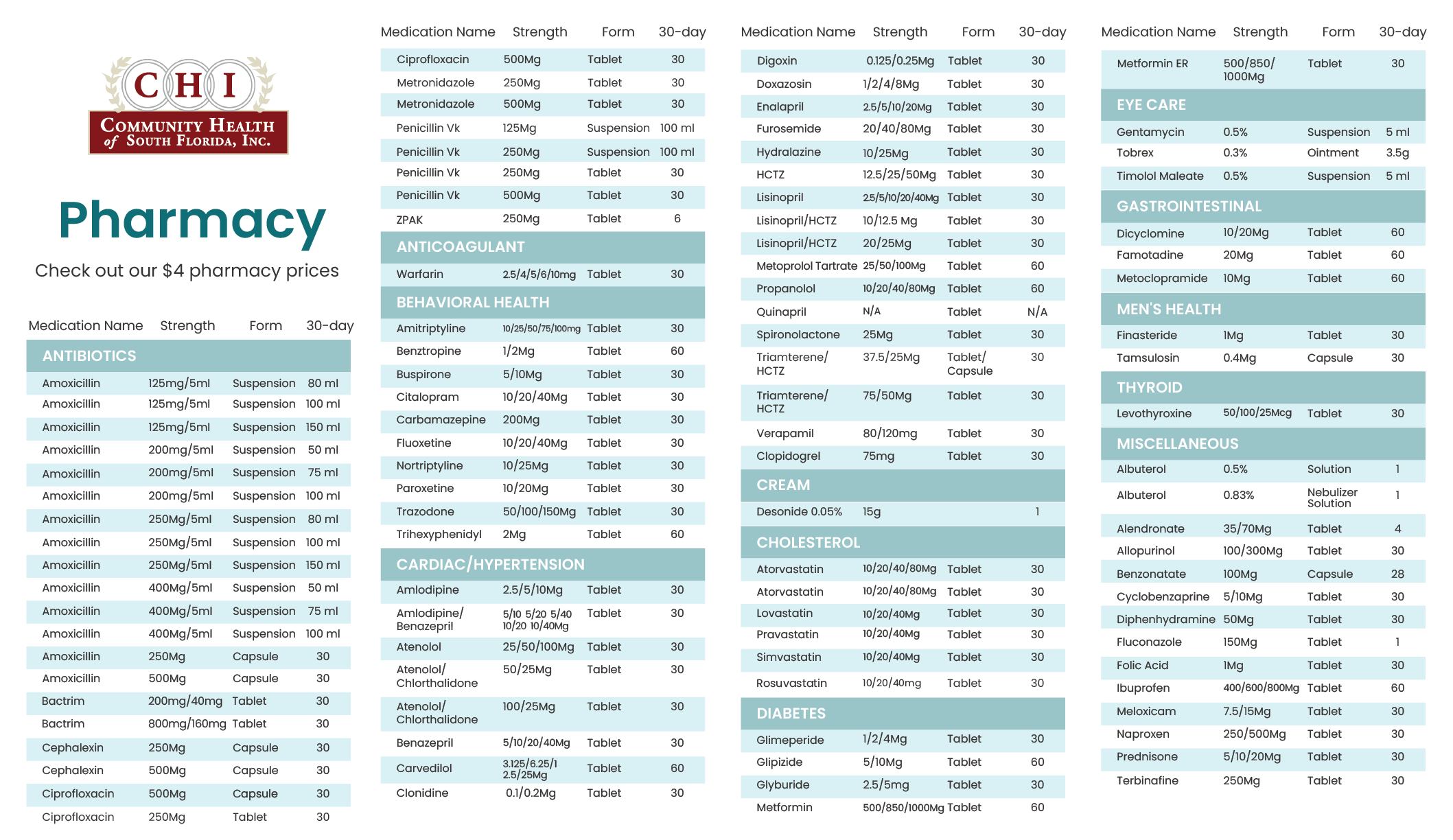Community Health of South Florida is…
a nonprofit health care organization providing affordable quality primary and behavioral health care services to the residents of rapidly growing South Florida. CHI operates 11 state-of-the-art community health care centers and 35 school-based programs. All centers offer quality comprehensive primary and behavioral health care services. Our physicians are board certified or board eligible. Additionally, CHI is accredited by the Joint Commission and is accredited as a Patient-Centered Medical Home by the National Committee for Quality Assurance (NCQA). CHI offers a “one-stop-shop” model where the organization and delivery of quality services are seamless, affordable, accessible and culturally sensitive.
Community Health of South Florida Inc. (CHI) is ranked by the U.S. Department of Health and Human Services (HRSA) as a nationwide leader in clinical quality measures. In fact, HRSA awarded CHI for being in the top 25 percent of health centers throughout the country for improvements in our patients’ health. CHI is recognized for exceeding national quality benchmarks and top tier results in the areas of: diabetes control, high blood pressure control, heart disease control, weight assessment and counseling for nutrition in children and adults, intervention for smokers and linking HIV patients to care. HRSA awarded the designation by comparing CHI’s clinical quality measures to more than 13,000 other health centers throughout the United States.
CHI has a one-stop shopping model that allows patients to utilize several services in one location. It has primary care, pediatrics, OB/GYN, dental, behavioral health, vision, urgent care, pharmacy, radiology and laboratory services. CHI even offers free transportation for patients going to and from doctor’s appointments and delivers low-cost prescriptions.
Community Health of South Florida is…
a nonprofit health care organization providing affordable quality primary and behavioral health care services to the residents of rapidly growing South Florida. CHI operates 11 state-of-the-art community health care centers and 35 school-based programs. All centers offer quality comprehensive primary and behavioral health care services. Our physicians are board certified or board eligible. Additionally, CHI is accredited by the Joint Commission and is accredited as a Patient-Centered Medical Home by the National Committee for Quality Assurance (NCQA). CHI offers a “one-stop-shop” model where the organization and delivery of quality services are seamless, affordable, accessible and culturally sensitive.
Community Health of South Florida Inc. (CHI) is ranked by the U.S. Department of Health and Human Services (HRSA) as a nationwide leader in clinical quality measures. In fact, HRSA awarded CHI for being in the top 25 percent of health centers throughout the country for improvements in our patients’ health. CHI is recognized for exceeding national quality benchmarks and top tier results in the areas of: diabetes control, high blood pressure control, heart disease control, weight assessment and counseling for nutrition in children and adults, intervention for smokers and linking HIV patients to care. HRSA awarded the designation by comparing CHI’s clinical quality measures to more than 13,000 other health centers throughout the United States.
CHI has a one-stop shopping model that allows patients to utilize several services in one location. It has primary care, pediatrics, OB/GYN, dental, behavioral health, vision, urgent care, pharmacy, radiology and laboratory services. CHI even offers free transportation for patients going to and from doctor’s appointments and delivers low-cost prescriptions.
Community Health of South Florida Inc. (CHI) is the first Federally Qualified Health Center in the nation to be awarded the coveted Governor’s Sterling award. The South Florida not-for-profit comprehensive healthcare company has been serving the community for decades. The award marks a milestone for the agency as the Sterling award is a difficult accomplishment that only few companies are able to obtain. Read more here.
Our Funders
Our Funders
Our Funders
Our Mission, Vision & Values
“Patient Care Comes First”
OUR MISSION
To deliver safe, accessible, compassionate and culturally competent quality health care services to the people of South Florida while training the next generation of health care professionals.
OUR MOTTO
At Community Health of South Florida Inc., our motto is “Patient Care Comes First.” We strongly believe in our motto and it is apparent when you visit one of our many centers located throughout South Florida. Our health providers and team of professionals are ready to provide healthcare to you and your family.
Our Mission, Vision & Values
“Patient Care Comes First”
OUR MISSION
To deliver safe, accessible, compassionate and culturally competent quality health care services to the people of South Florida while training the next generation of health care professionals.
OUR MOTTO
At Community Health of South Florida Inc., our motto is “Patient Care Comes First.” We strongly believe in our motto and it is apparent when you visit one of our many centers located throughout South Florida. Our health providers and team of professionals are ready to provide healthcare to you and your family.
Our Mission, Vision & Values
“Patient Care Comes First”
OUR MISSION
To deliver safe, accessible, compassionate and culturally competent quality health care services to the people of South Florida while training the next generation of health care professionals.
OUR MOTTO
At Community Health of South Florida Inc., our motto is “Patient Care Comes First.” We strongly believe in our motto and it is apparent when you visit one of our many centers located throughout South Florida. Our health providers and team of professionals are ready to provide healthcare to you and your family.
Seed planted by Doris Ison is still growing as CHI
It might have seemed like the odds were against an African-American woman with a third-grade education in the late 60s and early 70s. But Doris Ison, a tomato picker with an amazing ability to dream big, never let barriers deter her from anything.
“She was a strong speaker,” recalled her grandson, Brian Lucas. “She was not one that you would label as being shy. She was not afraid to open her mouth and talk. She just had that gift.”
So when Ison became fed up with the lack of access to medical care in South Dade, she set out to do something about it. Her quest would take her before the U.S. Congress and ultimately result in the creation of what is today Community Health of South Florida Inc. (CHI), a nonprofit health care company with 11 health centers and more than 30 school-based centers.
In the late 60s, Ison lived the problem firsthand in South Dade. Back then, African-Americans were not allowed to be treated at the nearest hospital in Homestead – the James Archer Smith Hospital, which is now called Homestead Hospital and part of Baptist Health.
“Black people couldn’t even go there for emergencies,” Ison told a South Dade News Leader reporter in 1976. “Black folks had to go all the way up to Kendall or Jackson. Even if they were bleeding to death they couldn’t stop at James Archer. Many of our people were born on the way to the hospital and many of them died.”
Ison went to the church community to ask doctors to help. She convinced several doctors to volunteer their time and work out of two double-wide trailers. It was a temporary solution to a gaping wound and Ison wasn’t prepared to stop until there was adequate health care for all.
Because Ison didn’t drive, she either walked or had her family drive her to where she needed and wanted to go, including numerous meetings and community outreach events. But one day on one of her walks, Ison encountered a group of migrant workers in the South Dade Labor Camps. Their children were sick with whooping cough and they didn’t have the means to go get medical care. In that moment, Ison decided to make sure her quest for health care included the migrants and many other indigent populations.
“She was always trying to find ways to make life better for others,” Lucas said. “She would do literally anything that needed to be done to try to make everyday things that people needed to be successful.”
That included lobbying federal legislators; a feat she also triumphed. Eventually CHI received federal funding after it was proclaimed a federally qualified health center. Even as the organization grew, Ison’s bravery and resilience was never forgotten. Its board of directors voted to name the main heath center after Ison in 1976. The act of gratitude brought Ison to tears.
“I hadn’t cried like that since I was six years old when I heard the schoolbell ring at Neva King and my mother told me I couldn’t go to school because I was black,” Ison said in 1976 when the building was named after her.
The community is indebted to Doris Ison for her vision and determination and persistence, said Col. Brodes H. Hartley Jr., President and CEO of CHI.
“People who have the will can overcome these perceived disadvantages if they commit to serving others and, of course, that’s what community health centers are all about,” he said.
On Feb. 27, 1974, Ison went to Washington, D.C., and spoke to the Special Committee on Aging before the U.S. Senate advising them about the elderly and transportation issues. She told them help was needed to get people to medical appointments. Transportation in South Dade was costly and sparse at the time. But she said CHI was making efforts to help.
“Since we have the CHI system they have mini-buses to service the migrant camps,” Ison told legislators, according to the Senate transcript.
And when Sen. Ted Kennedy, D-Mass., came to Miami in 1977, he made a point to visit CHI and meet with Ison.
“Before he came, my grandmother was real excited. My family was excited,” recollected Lucas, who was just 8 years old at the time of the visit. “You know I couldn’t understand what the big deal was. But, she took me with her and I’ll just never forget it. I had never seen so many cameras or reporters in my young life.”
Today Lucas looks back at the magnitude of that moment, recognizing its significance and the fortitude, determination and intelligence of his grandmother. The images of Ison and Kennedy together are forever burned into his memory.
“He and my grandma and others went to other areas of the facility and talked,” Lucas recalled. “I’m confident he got an earful.”
Hermine Pollard, Vice President of Enabling Services at CHI, remembers Ison’s persistence and passion as well.
“She was a very feisty person,” Pollard said. “Just the little answers she would give as if she didn’t take anything from anyone. She was very determined. She wasn’t rude… just said what had to be said.”
Ison continued to advocate for health care and CHI all the way up until her death at 81 years of age in 1989. Her spirit for advocacy was then carried on by the leaders of CHI entrusted with her legacy. This included her niece Carolyn Taylor Pates who went on to serve on CHI’s Board of Directors.
“I don’t know where she might would still be if she were still here today. But I’m sure she would be all smiles,” Pates said. “She definitely would be applauding Col. Hartley and the staff. With the teaching health center and all the other things that are being added, it’s overwhelming in an exciting way.”
Hartley, CHI’s President, also looks at Ison’s accomplishments as remarkable.
“She was a woman of great vision and determination, an activist within the community to improve and uplift the community of where she lived,” Hartley said.
Today Ison’s vision has grown into 11 health centers and more than 30 school-based health centers with comprehensive services and programs. The services include primary care, pediatrics, dental, women’s health, behavioral health, radiology, urgent care, pharmacy and laboratory. Ison’s quest for quality health care for all also now includes specialized programs for migrants, HIV/AIDs, cancer and more. CHI has implemented free transportation to and from appointments and extended its hours to include evenings and weekends.
Today it is no longer just a place for the indigent. Now uninsured and insured get quality health care from the Florida Keys all the way into South Dade and even up into Coconut Grove.
Decades ago Ison told this to the South Dade News Leader: “I just wish that people would stop calling CHI a ‘poor folks clinic’ and realize that it’s everybody’s clinic.”
Certainly she would be pleased with the progress the organization has made today all because she planted the seed in 1971.
“When we look at our early existence of this organization – the foundation that was established by Doris Ison – to where we are today with phenomenal growth, we can all be proud of our achievements,”
Hartley said. “We are here today because of Doris Ison’s fortitude.”
Seed planted by Doris Ison is still growing as CHI
It might have seemed like the odds were against an African-American woman with a third-grade education in the late 60s and early 70s. But Doris Ison, a tomato picker with an amazing ability to dream big, never let barriers deter her from anything.
“She was a strong speaker,” recalled her grandson, Brian Lucas. “She was not one that you would label as being shy. She was not afraid to open her mouth and talk. She just had that gift.”
So when Ison became fed up with the lack of access to medical care in South Dade, she set out to do something about it. Her quest would take her before the U.S. Congress and ultimately result in the creation of what is today Community Health of South Florida Inc. (CHI), a nonprofit health care company with 11 health centers and more than 30 school-based centers.
In the late 60s, Ison lived the problem firsthand in South Dade. Back then, African-Americans were not allowed to be treated at the nearest hospital in Homestead – the James Archer Smith Hospital, which is now called Homestead Hospital and part of Baptist Health.
“Black people couldn’t even go there for emergencies,” Ison told a South Dade News Leader reporter in 1976. “Black folks had to go all the way up to Kendall or Jackson. Even if they were bleeding to death they couldn’t stop at James Archer. Many of our people were born on the way to the hospital and many of them died.”
Ison went to the church community to ask doctors to help. She convinced several doctors to volunteer their time and work out of two double-wide trailers. It was a temporary solution to a gaping wound and Ison wasn’t prepared to stop until there was adequate health care for all.
Because Ison didn’t drive, she either walked or had her family drive her to where she needed and wanted to go, including numerous meetings and community outreach events. But one day on one of her walks, Ison encountered a group of migrant workers in the South Dade Labor Camps. Their children were sick with whooping cough and they didn’t have the means to go get medical care. In that moment, Ison decided to make sure her quest for health care included the migrants and many other indigent populations.
“She was always trying to find ways to make life better for others,” Lucas said. “She would do literally anything that needed to be done to try to make everyday things that people needed to be successful.”
That included lobbying federal legislators; a feat she also triumphed. Eventually CHI received federal funding after it was proclaimed a federally qualified health center. Even as the organization grew, Ison’s bravery and resilience was never forgotten. Its board of directors voted to name the main heath center after Ison in 1976. The act of gratitude brought Ison to tears.
“I hadn’t cried like that since I was six years old when I heard the schoolbell ring at Neva King and my mother told me I couldn’t go to school because I was black,” Ison said in 1976 when the building was named after her.
The community is indebted to Doris Ison for her vision and determination and persistence, said Col. Brodes H. Hartley Jr., President and CEO of CHI.
“People who have the will can overcome these perceived disadvantages if they commit to serving others and, of course, that’s what community health centers are all about,” he said.
On Feb. 27, 1974, Ison went to Washington, D.C., and spoke to the Special Committee on Aging before the U.S. Senate advising them about the elderly and transportation issues. She told them help was needed to get people to medical appointments. Transportation in South Dade was costly and sparse at the time. But she said CHI was making efforts to help.
“Since we have the CHI system they have mini-buses to service the migrant camps,” Ison told legislators, according to the Senate transcript.
And when Sen. Ted Kennedy, D-Mass., came to Miami in 1977, he made a point to visit CHI and meet with Ison.
“Before he came, my grandmother was real excited. My family was excited,” recollected Lucas, who was just 8 years old at the time of the visit. “You know I couldn’t understand what the big deal was. But, she took me with her and I’ll just never forget it. I had never seen so many cameras or reporters in my young life.”
Today Lucas looks back at the magnitude of that moment, recognizing its significance and the fortitude, determination and intelligence of his grandmother. The images of Ison and Kennedy together are forever burned into his memory.
“He and my grandma and others went to other areas of the facility and talked,” Lucas recalled. “I’m confident he got an earful.”
Hermine Pollard, Vice President of Enabling Services at CHI, remembers Ison’s persistence and passion as well.
“She was a very feisty person,” Pollard said. “Just the little answers she would give as if she didn’t take anything from anyone. She was very determined. She wasn’t rude… just said what had to be said.”
Ison continued to advocate for health care and CHI all the way up until her death at 81 years of age in 1989. Her spirit for advocacy was then carried on by the leaders of CHI entrusted with her legacy. This included her niece Carolyn Taylor Pates who went on to serve on CHI’s Board of Directors.
“I don’t know where she might would still be if she were still here today. But I’m sure she would be all smiles,” Pates said. “She definitely would be applauding Col. Hartley and the staff. With the teaching health center and all the other things that are being added, it’s overwhelming in an exciting way.”
Hartley, CHI’s President, also looks at Ison’s accomplishments as remarkable.
“She was a woman of great vision and determination, an activist within the community to improve and uplift the community of where she lived,” Hartley said.
Today Ison’s vision has grown into 11 health centers and more than 30 school-based health centers with comprehensive services and programs. The services include primary care, pediatrics, dental, women’s health, behavioral health, radiology, urgent care, pharmacy and laboratory. Ison’s quest for quality health care for all also now includes specialized programs for migrants, HIV/AIDs, cancer and more. CHI has implemented free transportation to and from appointments and extended its hours to include evenings and weekends.
Today it is no longer just a place for the indigent. Now uninsured and insured get quality health care from the Florida Keys all the way into South Dade and even up into Coconut Grove.
Decades ago Ison told this to the South Dade News Leader: “I just wish that people would stop calling CHI a ‘poor folks clinic’ and realize that it’s everybody’s clinic.”
Certainly she would be pleased with the progress the organization has made today all because she planted the seed in 1971.
“When we look at our early existence of this organization – the foundation that was established by Doris Ison – to where we are today with phenomenal growth, we can all be proud of our achievements,”
Hartley said. “We are here today because of Doris Ison’s fortitude.”
Locations
Providers
Services
Objective
Locations
Providers
Services
Objective
